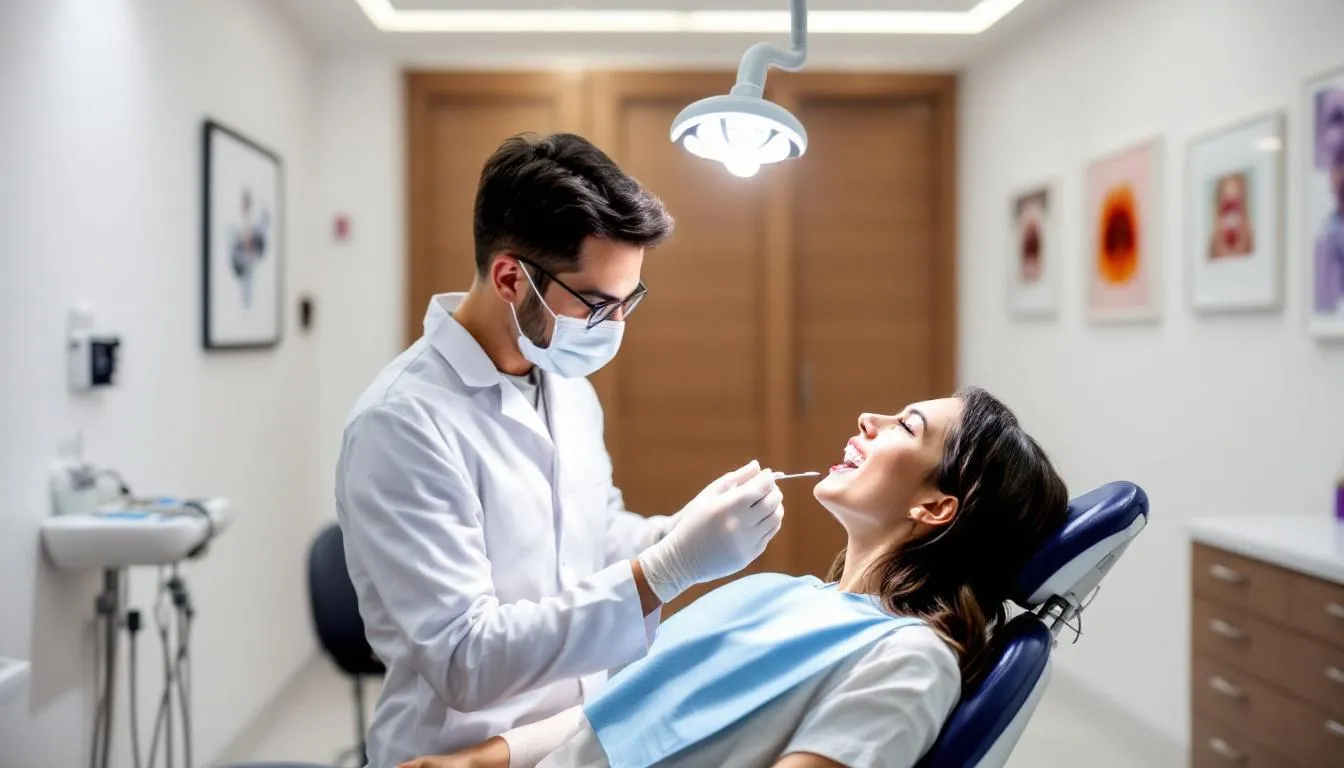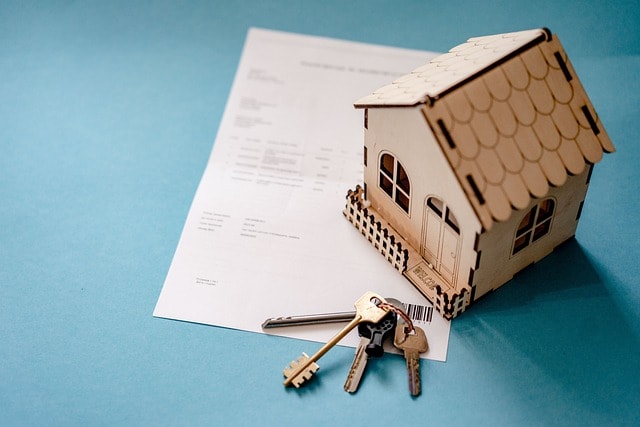What are Business Loans for Dentists?
Business loans for dentists are specialized financing solutions designed to meet the unique needs of dental professionals and practices. These loans provide the capital necessary to start, grow, or maintain your own practice. Whether a dentist is launching a new practice, upgrading equipment, merchant services, hiring staff, or expanding to a second location, there are loan options that can support each stage of business growth.
Dentists can use business loans to cover a wide variety of needs. This includes investing in high-tech dental equipment, remodeling or building new office space, purchasing an existing practice, boosting cash flow during slower seasons, or consolidating existing debt. Business term loans are a common option, offering lump-sum financing with predictable monthly payments over a fixed term. Business lines of credit provide flexible access to funds that can be used as needed, ideal for managing day-to-day expenses or unexpected costs.
Equipment financing is another popular choice for dental practices, especially when purchasing expensive tools like X-ray machines, chairs, or imaging systems. SBA loans offer long repayment terms and low interest rates, which can be appealing for dentists with strong credit histories.
Working capital loans help cover operating costs like payroll, rent, and inventory, while commercial real estate loans can fund the purchase or construction of a dental office. Options for dental practice financing include loans for construction, debt consolidation, and commercial real estate.
What Are Some Uses of Dental Practice Loans?
If you start or manage a dental practice, you may need a dental office loan or dental equipment financing. Securing financing is a significant part of running a dental practice. It can help a dental practice owner in the following ways:
Working capital infusion
To keep your dental practice open, you need to cover various costs. Running a business can be expensive, and cash flow can be an issue. Borrowing money to cover expenses like payroll, supplies, utilities, or insurance can help you keep the lights on and the gears moving.
Small business lenders can provide the capital you need to cover those costs. Numerous dental business loan products and financing solutions make it easier to run and move your business forward.
Business expansion or renovation
Opening a new dental practice or sprucing up your current office with new fixtures, decor, or equipment can help to create a clean and modern look in your waiting area and promote comfort for patients.
Moving a dental practice to a more prominent location, renovating a current practice, or opening a second practice in a new area requires both planning and money.
You can apply for bank loans to finance new store openings or office remodels. However, if your local bank makes it challenging to get the financing you need, some alternative lenders simplify the application process and can fund within a few business days.
Acquire an existing practice
When buying into a dental practice, you may want to consider a loan that funds renovations, equipment upgrades, and other expenses associated with the purchase. In this case, the SBA 7a loan will probably be the best bet.
Loan terms may vary greatly depending on the patient portfolio of the business you’re acquiring, the age of the equipment, and other factors.
Purchasing or upgrading equipment
Technology in dentistry is ever-evolving. To keep your practice on the leading edge, you might consider investing in new equipment.
Dentists have several options for financing this equipment, including using some of the capital they have in the bank, getting a business loan, or using a credit line. There are also small loans from online lenders that might work for paying a portion of the cost of new office equipment and software.
Equipment loans are often easier to obtain than other business loans because the dental equipment will serve as collateral. That’s right, no personal collateral is required! The terms are generally favorable; even larger dental practices take advantage of equipment financing. However, consider the total cost of ownership and long-term financial impact when deciding how to finance your new dental equipment.
Starting a dental practice
Starting a dental practice can be very expensive, so it may be helpful to finance the endeavor with a startup loan.
When starting a new practice, you need to consider many factors. You will need to find office space for your practice, get the necessary equipment, and hire staff.
You’ll likely need bank loans or SBA loans for financing like this.
Investing in Dental Software
When you own a dental practice, you have many choices of practice management software. Involve your whole team in the purchase process, and make sure the new software will work with your existing setup. Financing can help cover the cost of the software, and you may also want to set aside money for training. If you’re changing accounting software, you may need to hire an accountant or bookkeeper to move your books over to the new system.
What Are the Requirements for Dental Practice Financing?
To qualify for dental practice loans with the best terms, it is essential to have a strong loan application. You must have a good credit score, have at least one year of tax returns and financial statements, and provide several personal references.
This is especially important for bank and SBA guidelines that require a lengthy, detailed application process. Make sure to have the following in your loan application for the best chance at credit approval:
Business plan
One of the first steps for a person who wants to own or get funding for a dental practice is to prepare a business plan. A business plan should include your experience, target market, competing practices, and marketing strategies. It should also contain financial projections. In addition, a business plan will give a lender an idea about the loan applicant’s ability to run a successful practice.
Outstanding student loans
Many dentists take out a student loan when they attend dental school. Student debt and any other form of consumer debt—not business-related debt—will not be a factor in qualifying for dental business loans. As long as you can pay back the dental office loan, the bank will only concern itself with how your dental office performs.
Dental office experience
To be eligible for a substantial loan in the dental industry, you must demonstrate your experience and track record. The more experience you have, the larger the loan amount you can qualify for in some cases. Banks may deny you a loan if you have little or no experience in dentistry.
Credit Score
One of the main factors determining whether you qualify for dental practice loans is your credit score. To be eligible for a bank loan or an SBA loan, your credit score should be at least 650. Scores below 650 may qualify you only for an online lender’s short-term or medium-term loan.
What Are Some Dental Practice Loan Options?
Various factors affect the cost of a small business loan for dentists, including the performance of the business, credit score, and the type of financing you’re applying for. Dental professionals seeking to finance dental equipment or acquire a practice will benefit from various financing options tailored to each transaction. Practice specialists can provide personalized support throughout the dental practice loan process.
You must use loan funds for business purposes. Available dental practice loans are as follows:
Small Business Administration (SBA) loans
The government guarantees Small Business Administration (SBA) loans. The SBA offers term loans to businesses ranging in size and need, with a broad spectrum of loan products. SBA loan programs can be used for capital expenditures, working capital, commercial real estate financing, and debt restructuring, among other things.
SBA loans have the most stringent documentation requirements of any lender, with detailed financial documentation required along with a business plan in some cases. There are strict collateral and/or personal guarantee requirements. These loans can take weeks or months to process.
Business owners with strong credit who require a long-term loan can apply for an SBA loan through their local bank, credit union, or United Capital Source’s extensive list of SBA partners.
The SBA 7(a) loan program is designed for significant small business loans up to $5 million and is perfect for dentists. The terms of these loans are highly competitive because of the financial protection the lender receives. You can expect a lower monthly payment with SBA loans because the terms can go out as long as 25 years. Offers like discounted loan administration fees are available for veterans applying for small business loans.
Bank loans
Commercial banks offer a variety of funding options for dentists. Some commercial banks offer lending options specifically designed for dentists that feature unique advantages such as reduced fees and other special offers for ADA members. Banks that specialize in dental financing understand the unique needs of dentists because they have financed significant amounts in dental practice loans.
Traditional banks offer several types of financing to dental practices. The terms of your bank loan—purpose, loan amount, and duration—will vary based on your financial situation. If you have a good credit score and are interested in traditional bank financing, a phone call to your bank’s dental practice loan specialist is an excellent first step.
If you’re a startup with no credit history or an established business that’s working on expanding, a bank loan could be a good option for dental practices. Banks like Bank of America offer specialized services and banking services through programs such as America Practice Solutions.
Alternative business loans
Alternative business lenders offer dental practices funding options to support their business cash flow. These lenders fund a range of business loan products, including working capital loans, business lines of credit, equipment financing, revenue-based financing, term loans, and receivables factoring. Some even offer merchant cash advances funded within a few business days.
Alternative dental practice loans generally provide smaller loan amounts than standard business loans and have shorter terms. Still, they can be offered to businesses with less than one year in business and low credit scores. Some alternative lenders provide a practice specialist who can help with business resources for the healthcare industry.
Business lines of credit
A business line of credit functions similarly to a business-purpose credit card. It enables a small business owner to draw on an ongoing source of working capital that can be used and repaid as needed.
Because the line of credit is an ongoing revolving source of funds, it’s ideal for handling unexpected expenses, purchasing supplies or equipment, or repairing equipment. You only pay interest on the amount drawn from the credit line, not the entire credit limit.
Business lines of credit are essentially pre-approved loans for businesses. You don’t have to worry about obtaining funding before you need it, as the funds will be there when you need them for dental practice expenses. You can compare loan rates from multiple lenders, at which point you might even decide to apply for a business line of credit with your bank or local credit union.
Businesses with a good credit history should consider applying for a business line of credit when they need to fill cash flow shortages or manage unexpected expenses.
Dental equipment financing
Dental practices have many needs, including dental chairs, lighting, X-ray and imaging equipment, basic instruments, office computers, and PPE for staff.
A small business owner may use equipment financing to fund the purchase of new equipment. A down payment is required to purchase new equipment, but because the equipment serves as collateral for the loan, you can use equipment financing to buy expensive items that your practice needs to function.
Financing dental equipment is more readily available to dentists with bad personal credit; therefore, you can borrow more money than you could by getting a traditional loan. Loan amounts are based on the purchase price of the equipment. Using the equipment itself as collateral makes it easier to secure financing.
Existing dental practice acquisition loans
Many lenders, including Bank of America and the SBA, offer funding options to help dentists purchase or improve their practices. Still, the financing comes with a catch: each lender has different requirements, including a minimum credit score.
Businesses that would benefit from acquiring an existing practice should have a solid financial history, adequate industry experience, and a plan to expand their operation.
What are the benefits of Business Loans for Dentists?
Business loans give dentists the financial flexibility to grow their practices, invest in new technology, and enhance the quality of patient care. These loans provide access to the capital needed for both everyday operations and major investments without having to dip into personal savings or disrupt cash flow. With the right financing, dentists can improve efficiency, offer new services, and stay competitive in a rapidly evolving industry.
Loans also allow dental professionals to make long-term investments, such as purchasing real estate or expanding into new markets. In many cases, the returns generated from these investments can outweigh the cost of borrowing. Additionally, some loans—such as SBA loans or equipment financing—come with favorable terms that can help dentists manage repayment over time. Overall, the availability of tailored financing options can support both stability and growth for dental businesses.
What are the drawbacks of Business Loans for Dentists?
While business loans can be beneficial, they also come with risks and potential downsides. Borrowing funds means taking on debt, which requires regular repayment regardless of how the practice is performing financially. For newer or smaller practices, loan payments can place strain on cash flow, especially during slow seasons or economic downturns. Interest costs can add up over time, particularly if the loan has high rates or fees.
Additionally, not all dental practices will qualify for the best loan terms. Lenders often evaluate credit scores, revenue history, and business plans, and those with weaker financials may only be eligible for shorter terms or higher interest rates. Some financing options also require collateral, such as business assets or personal guarantees, putting property at risk in case of default. Dentists must carefully evaluate their ability to repay the loan and weigh the long-term impact on their practice’s finances.
Dentist Business Loan Pros & Cons
Pros:
- Access to capital for growth, equipment, or expansion
- Flexible loan options tailored to dental practices
- Helps improve cash flow and manage operating expenses
- Potential tax advantages on loan interest or equipment depreciation
- Allows investment in modern technology and enhanced patient services
Cons:
- Loan repayment obligations regardless of revenue fluctuations
- High interest rates or fees for borrowers with lower credit scores
- Risk of taking on too much debt or straining cash flow
- Possible requirement for collateral or personal guarantees
- Time-consuming application and approval process for some loan types
What is the Best Dental Practice Financing for Your Business?
Dentists have the potential to earn more than those in other fields, so you have a good chance of acquiring dental practice financing. However, the loan product you apply for should be based on your financing needs and practice goals.
Many lending institutions offer specialized lending divisions for dentists and other medical professionals to help you understand the loan process and the various types of loans available to your business.
Once you’ve researched your options, you are left with the obvious question: How do you choose what loan is right for you? Your financial circumstances, credit history, and whether or not you need funds immediately will influence which option works best for you.
How to Apply for a Business Loan for a Dental Practice:
You can apply for a small business loan through our lender network by following these steps:
Step 1 – Apply online in a few minutes: Use our simple online application to submit a request for business funding. If you need any help along the way, give us a call, chat, or email.
Step 2 – Get expert advice on loan options: An expert, knowledgeable account executive will walk you through all the fine details and requirements. This is to ensure you have all the info you need.
Step 3 – Finalize your application and get funded: Once your funding has been approved and closed, the lender sends the funds to your account so you can start using them to grow your business.
Frequently Asked Questions
Here are the most common questions about business loans for dentists.
Can I Qualify for Dental Practice Loans with Bad Credit?
Your credit can be a factor in qualifying for a dental practice loan. However, bad credit isn’t necessarily a deal-breaker—it depends on why your credit is bad, business performance, and the lender.
How Long Can Dental Equipment be Financed?
Most dental equipment financing programs can go up to 5-6 years. The longer the term of your loan, the more time you have to pay it off, but you will probably pay more interest if you choose a long-term loan.
Some lending institutions might allow you to repay an equipment term loan early without paying a prepayment fee, and, in the process, reduce the amount of interest you pay.
Is it Hard to Get Approved for Dental Office Loans?
Dental startups and business owners with bad credit often face challenges in securing business loans. While these obstacles make it challenging, getting approved for a dental business loan is not impossible. When you work with a business loan marketplace like United Capital Source that understands your situation and how to best meet your needs, applying for a loan can be easy.
Business Loans for Dentists – Final Thoughts
As a dental professional who belongs to the American Dental Association, you care about the health of your patients. To ensure your dental practice thrives for years to come, you must be able to secure financing.
For dental professionals looking to start or expand their practice, securing a new small business loan can be a daunting task. However, to qualify for a loan, you need to determine which type of dental practice loan will make sense for your needs first.
Dental business loans are usually available for various purposes and can help you with an immediate or anticipated need. Whether you want to buy additional equipment or wish to expand your practice, dental practice financing is a great way to accomplish your goals.












